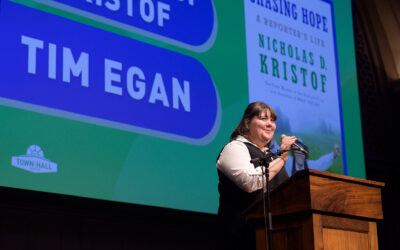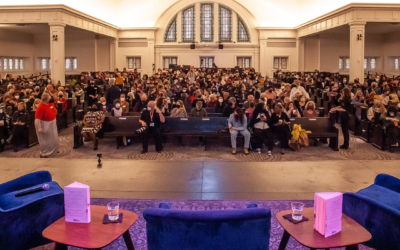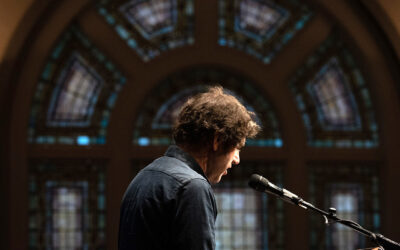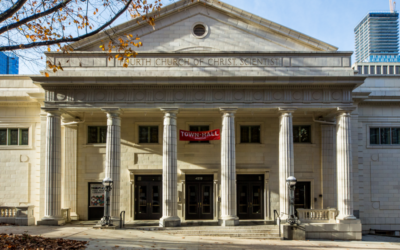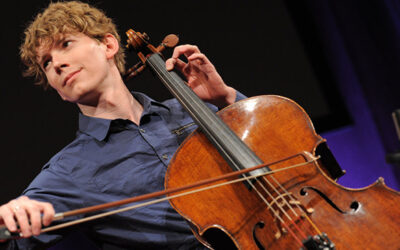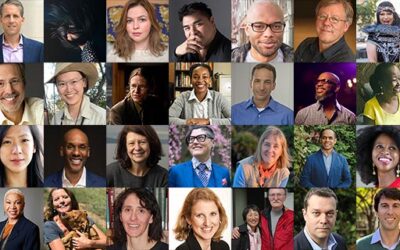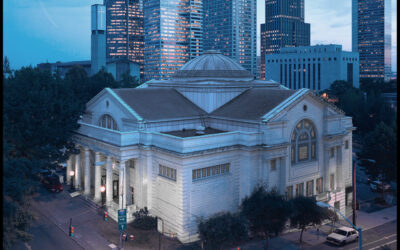Town Hall Seattle is thrilled to announce that Kate Nagle-Caraluzzo has been named Executive Director, effective June 3, 2024. Kate has served as Acting Executive Director since February and...
Announcing Wier Harman Way!
A dedicated city block in honor of our former executive director Wier loved Town Hall, but what he loved even more was our community. His innate belief that we’re better together is something to...
A Big Change: Or Is It?
For as long I’ve been at Town Hall Seattle — almost 17 people years (or 119 dog years, but who’s counting?) — our organization has been defined by 1) a broad and curious program, brimming with ideas...
The Road Ahead, The Road Behind
The end of the season is always a time of reflection at Town Hall. It's unsurprising that the 2021-22 season has had its challenges and uncertainties, but times like these can also feel inspiring —...
Apply Now to be Town Hall’s Winter/Spring 2022 Artist-in-Residence
Town Hall Seattle is seeking to work with one Artist in Residence (AiR) from March to May 2022. For our next AiR, we’re seeking a writer. Some of our past writers in residence have included Elise...
A Letter from Joshua Roman to the Town Music Community
After 15 years of serving as Artistic Director of Town Music at Town Hall Seattle, 2021-22 will be my final season. I have been blessed to bring amazing musicians and music to the stage to share with you.
Program Director Shin Yu Pai on Highlights from our Fall Calendar
Shin Yu Pai is no stranger to Town Hall Seattle. She began her relationship with us back in 2018 as an Inside/Out Artist in Residence for the Phinney/Greenwood neighborhood, curating programs that brought new local voices like author Thomas Hitoshi Pruiksma, Kathleen Alcalá, Rex Hohlbein of Facing Homelessness, and artist Susan Robb to the Town Hall Stage. In 2020, she wrote the vital blog piece, Town Hall Land Acknowledgement: Beyond Gestures, and pitched the concept to produce what would eventually become Lyric World, her podcast series centering on poets and poetry by BIPOC writers, with an emphasis on AAPI authors.
Over the years, Shin Yu’s presence at Town Hall has brought intention and community focus to our programming; it only seems natural that she became our Program Director earlier this year. Town Hall is thrilled to have Shin Yu onboard— read on to learn about what she looks forward to the most this season.
A More Perfect Version of Ourselves
“To tell a story of Seattle.” “A looooong discussion about the kind of city we want to share.” These phrases don’t appear in Town Hall’s mission statement but they’ve become a shorthand for the goal...
Town Music | A Conversation with Artistic Director Joshua Roman
Our Town Music chamber series has returned! In this age of COVID-19, the season has been transformed. Town Music, in the coming weeks and months, will explore how digital spaces can enhance our experience of art, rather than simply remind us of what we are missing.
Joshua Roman, Town Music’s Artistic Director, has spent much time in quarantine thinking about what a season of concerts can be without a concert hall for everyone to gather in. He sat down with correspondent Jonathan Shipley to discuss what it means to be a curator in this day and age and what silver linings there may be in a pandemic.
